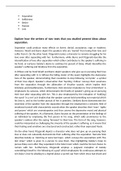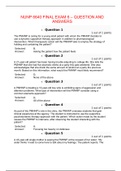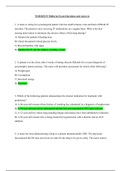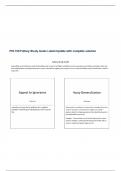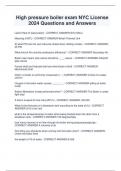Essay
Anthology and Gatsby A* essays for AQA A level English Literature
- Vak
- Instelling
- Boek
Six A*-A essays for Paper 1 comparative component: Anthology and the Great Gatsby. They are written under times conditions and marked by the teacher (band 5). Good luck in your exams!
[Meer zien]
